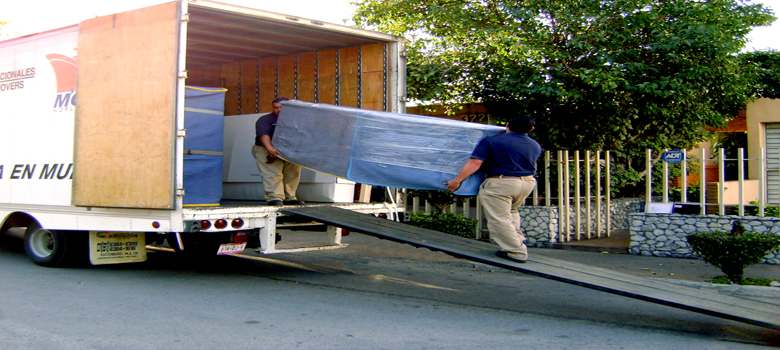1. What risks are there
in an international move?
You know that there may
be damage, loss or theft of your furniture. What may be new to you is that a
company can hide some serious costs in their initial quote; that you can
make the mistake of signing a contract
with no way back (no one should ask you to sign a contract); or that an
international move involves multiple parties (origin agent, broker, destination
agent, transport, insurance, etc.), and everyone's responsibility is nobody's
responsibility.
2. Why should I hire a
moving company?
Obviously, to reduce the
risks mentioned above: to have someone answer you for any flaw in the process,
to prevent damage to your belongings and to optimize costs, but mostly because,
let's be honest, you need a moving company and not someone who claims to know
how to "carry things from one country to another."
3. What should I ask to
select an international moving company?
If you don't want your
things to end up in the wrong hands, use these questions as filters to detect
quality among the abundant garbage on the moving industry: How long have they been
in the market? Can they provide recent references from recent clients? Who
certifies them? What associations do they belong to? Do they put their prices and
promises in writing? Should you expect additional charges and what they are?
Can they ensure your move? Will their employees be identified?
4. Will my belongings be
safe and secure on the move?
You get what you pay
for. Depending on the mover you choose, your belongings may be protected with
suitable equipment, or they may be tossed into the truck like sacks of cement.
5. Can I insure my
international move?
In case of loss, Mexican
moving companies are required by law to give you $500.00 MX per metric ton or
its proportionate share. You'd have to lose about six thousand cotton t-shirts
to get back 500 pesos. In the United States companies are legally required to
pay 0.40 USD per pound, which is not much either. So in order to recover what your
things are really worth, you can and must insure your move. Your mover should
advise on how to do it.
6. Do I have to pay
taxes for my household goods shipment??
If you meet the
requirements by Mexican law, no. So get information about these
requirements (before you start moving), because a simple oversight can cost
dearly.
7. How to save money on
my move?
Take only what you need,
and sell or give away what you don't use. Be sure to inquire about hidden
additional costs to prevent unexpected expenses. Ask which services are included
in the price of your move, and have a separate money reserve for these. You can
also consider selling everything and taking nothing, check out our article
on this decision.
8. How to protect my
family with so much insecurity in Mexico?
As our parents told us, we
shouldn't trust strangers. So make sure your mover doesn't subcontract
personnel, i.e. those involved in your move should be direct employees of the
company, identified and uniformed. Hire he who seems most dependable, and
always buy insurance to protect your assets.
9. Can you give me free
advice?
There are companies that
do not, people that will give incomplete advice or make you sign a contract
first. Our advise is completely free and without compromise, just enter our
live chat or call us toll free, you will find both here.
10. Should I sign a
contract?
No.
We want you to help you with these and more tips; help us help you by visiting How to move to Mexico.
Oh, and follow us on Twitter @moversmexico and Facebook Moving to Mexico (you'll find plenty of free advice and special offers).
by Mauricio Pozas
